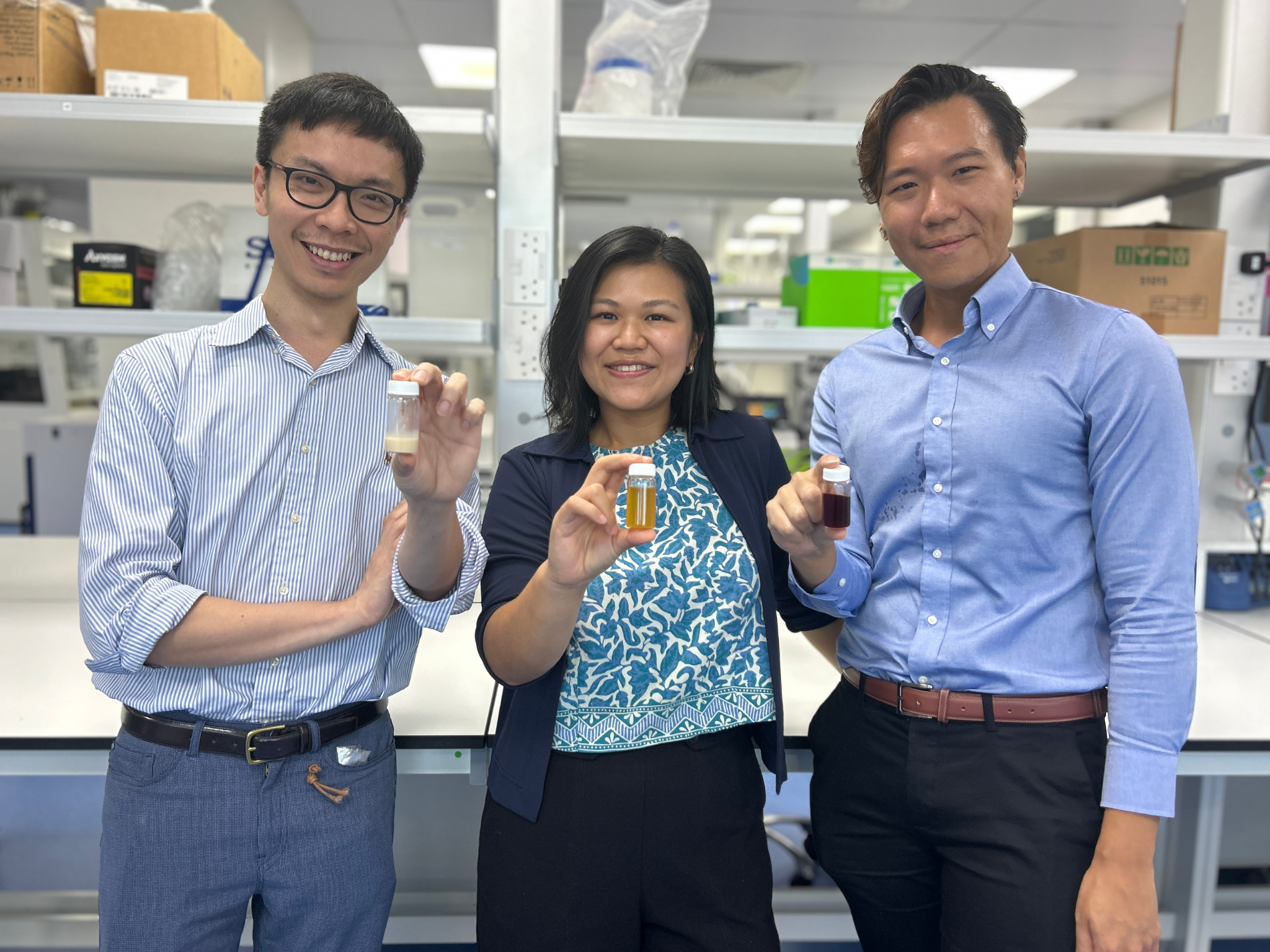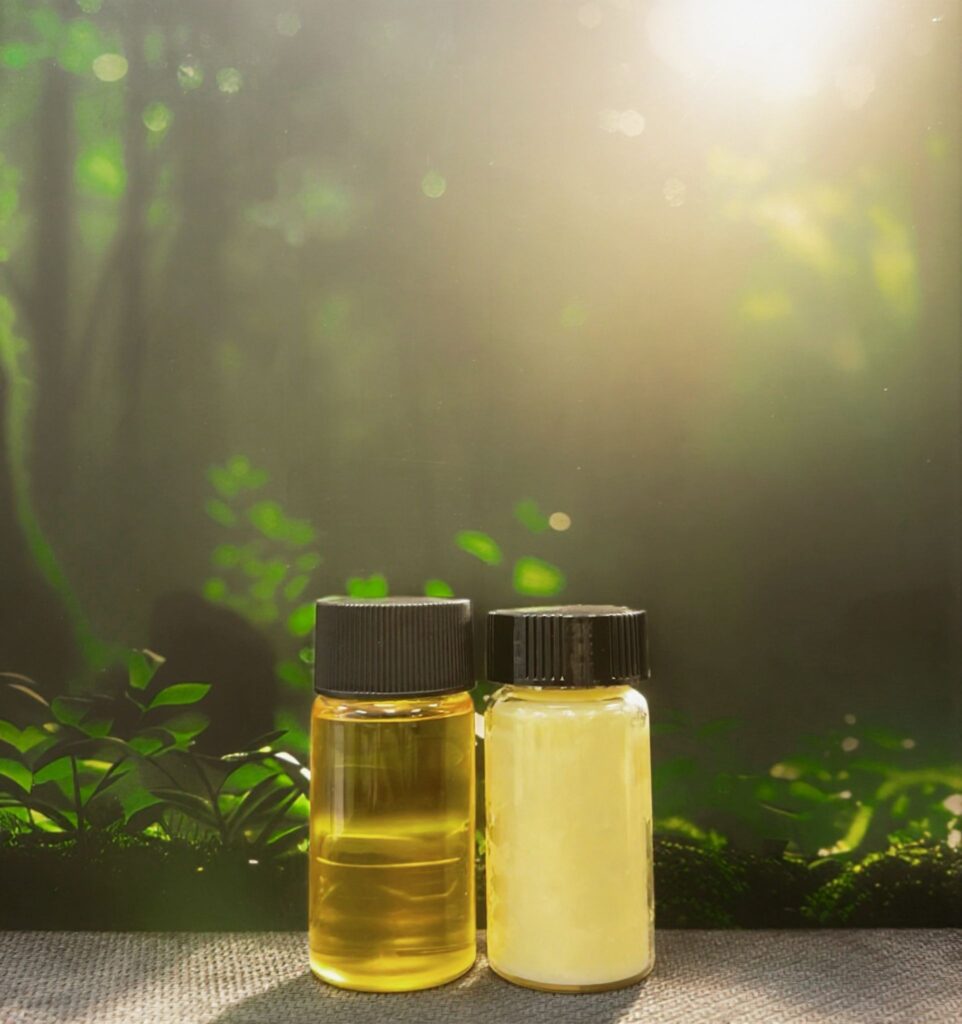
Singaporean sustainable fats startup Terra Oleo has emerged from stealth with a $3.1M funding round and selection in Breakthrough Energy’s 2025 Fellows cohort.
Turning agro-industrial waste into sustainable alternatives to palm oil and cocoa butter, Singapore firm Terra Oleo has raised $3.1M in funding from ADB Ventures, The Radical Fund, Elev8.vc, Better Bite Ventures, and a “strategic corporate investor” from the palm oil industry, among others.
The startup has also been named in the 2025 Fellows programme by Bill Gates’s Breakthrough Energy. The initiative helps founders bridge the gap from lab to market and supports early-stage innovators with capital and mentorship. Fellows are selected through a rigorous process to ensure their technologies can reduce emissions at scale, by at least five gigatonnes per year.
Terra Oleo – whose waste-valorising, precision-fermented fats cut emissions by up to 86%, land use by 90%, and water use by 88% – was selected to solve the climate, regulatory, and supply challenges facing palm oil and cocoa supply chains. The organisation’s backing will help it scale up production and advance customer formulation testing and validation.
“We are at lab-scale moving into pre-pilot scale. Several of our higher-value target ingredients are at price parity with their conventional equivalents,” co-founder and CEO Shen Ming Lee tells Green Queen.
Sustainable fats from starch, biodiesel and olechemical waste

Lee, who founded Terra Oleo with Boon Uranukul and Min Hao Wong, grew up in the palm oil industry, with her family’s business among the world’s largest producers of the oil. So she firsthand knows the problems posed by its production.
The omnipresent fat is revered for its neutral flavour, smell and colour, and ability to withstand high temperatures and act as a natural preservative. But producing it is linked to mass tropical deforestation and wildlife and human rights abuses.
Indonesia and Malaysia alone are home to 90% of oil palm trees – the former’s forests have been subject to wildfires emanating directly from palm plantations in 2019. Palm oil production has increased tenfold since 1980, and as demand increases, more forests are set to be burnt down, a form of mass deforestation that emits greenhouse gases, while removing trees that would help absorb them.
Climate change is disrupting the cocoa industry too. Global stocks of the crop have slumped to their lowest in a decade. Plantations in the Ivory Coast and Ghana, the two largest producers, are the hardest hit due to extreme weather and crop diseases. That has caused cocoa prices to reach all-time highs.
Terra Oleo is betting on waste and fermentation to decarbonise these two industries. Its precision fermentation process modifies yeast into lipids with customisable profiles for high-value palm and cocoa applications, and eschews the energy-intensive refining steps and toxic byproducts of oleochemical processes.
“Our defensible tech edge lies in deep expertise in microbial strain engineering, which enables our yeast to directly produce application-ready specifications of high-value palm oil derivatives (specialty oleochemicals) and cocoa butter equivalents,” said Lee.
“In parallel, we employ synthetic biology innovations to enhance process economics, from efficiently utilising low-cost agro-industrial waste streams to reducing downstream processing costs,” she added. “We source cost-effective waste streams from starch, biodiesel, and oleochemical production, which are abundant across Southeast Asia.”
Terra Oleo is already testing palm and cocoa fat substitutes with companies

Terra Oleo’s process overcomes the limits of natural microbes, delivering superior unit economics and faster market adoption than other solutions. “We’ve built strain capabilities across three yeast species,” Lee said, without disclosing the specifics.
At full scale, its technology is predicted to remove 900 million tonnes of CO2 from the palm and cocoa supply chains annually, affecting products across the personal care, cosmetics, pharmaceutical and food industries.
“We are manufacturing in Thailand and Singapore across all target products. We are product testing with several global and regional leaders in oleochemicals, food, personal care, and cosmetics. Product validation is underway,” said Lee.
“We will use the funds to scale from lab to pilot and advance formulation testing and validation with key customers,” she said of the capital raise.
Ashley Gross, VP of Breakthrough Energy, added: “We’re honoured to have the opportunity to work with talented founders who are tackling the most difficult climate and energy challenges around the world.”
Terra Oleo’s raise comes amid rapid advancements in the sustainable fats sector. This month, British firm Clean Food Group received regulatory approval in the US, EU and UK to sell its yeast-derived oil in cosmetic applications, and Estonia’s Äio completed a one-tonne production run for its palm oil substitute, eyeing market entry by year-end.
And yesterday, Dutch producer NoPalm Ingredients signed a deal with dairy giant Milcobel to use its whey permeate as a fermentation feedstock for its palm oil alternatives. It will also explore the feasibility of co-locating its first commercial-scale factory at the latter’s site in Langemark.
The post Backed by Bill Gates, Singapore’s Terra Oleo Raises $3.1M to Turn Waste Into Palm Oil Substitutes appeared first on Green Queen.
This post was originally published on Green Queen.